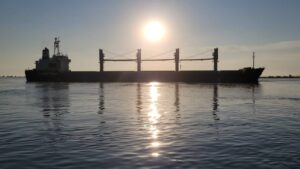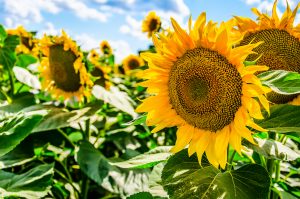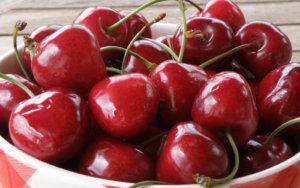
The next four ships with 88.17 thousand tons of agricultural products left the ports of Odessa and Pivdenny on Friday for the countries of Asia and Europe, the Ministry of Infrastructure of Ukraine reports.
“MAINLAND, NEW FAITH, USICHEM departed from the berths of the port of Odessa. From the port of Pivdenny – KARTERIA,” the agency noted on Facebook.
In general, since the launch of the first vessel with Ukrainian food, taking into account today’s vessels, 4.9 million tons of agricultural products have been exported. In total, 222 ships with agricultural products departed from Ukrainian ports, sent to the countries of Asia, Europe and Africa.
As reported, on July 22 in Istanbul, with the participation of the UN, Ukraine, Turkey and Russia, two documents were signed on the creation of a corridor for the export of grain from three Ukrainian ports – Chornomorsk, Odessa and Pivdenny.

Metinvest B.V. (the Netherlands), the parent company of the international vertically integrated mining and metallurgical group Metinvest, in 2020 reduced sales of products in Europe by 21% compared to the previous year, to $ 2.851 billion.
According to the audited consolidated financial results for 2020, sales in Europe fell mainly due lower sales prices for steel products. This was also affected by a decrease in sales of semi-finished products by 31% and iron ore products by 48%. As a result, the region’s share in total revenue decreased by 7 percentage points (p.p.) compared to the previous year, to 27%.
In 2020, revenue in Ukraine decreased by 7%, to $ 2.939 billion, mainly due to a decrease in the average price for metal products and coke, as well as a 26% reduction in pellet sales. The decrease in revenues was partially offset by an increase in the supply of long products by 23%, coke by 14% and iron ore concentrate by 43%. In general, the share of Ukraine in the consolidated revenue decreased by 1 p.p. compared to 2019, to 28%.
Revenue in the Middle East and North Africa region rose 9%, to $ 1.8 billion, mainly driven by an increase in slab (2.5 times) and flat products (12%) shipments. As a result, the region’s share in the consolidated revenue increased by 2 p.p., to 17%.
Revenue in Southeast Asia rose 56%, to $ 1.467 billion thanks to the resumption of sales by Metinvest to China amid strong demand in the country. During the reporting period, the group sold 862,000 tonnes of semi-finished products and finished metal products in the country. In addition, supplies of iron ore products to China increased 1.7 times. As a result, the market share of the region in total revenue increased by 5 p.p., to 14%.
Revenue in the CIS decreased by 23%, to $ 635 million due to a decrease in sales volumes and sales prices for flat products. The region’s share in the consolidated revenue decreased by 2 p.p., to 6%.

KSG Agro agricultural holding in 2020 increased export of agricultural products to African and Asian markets by 46%, to 7,770 tonnes, the holding’s press service has said.
“Last year, we expanded our presence in export African and Asian markets. In the context of the quarantine crisis, the issue of diversifying supplies and expanding the range of products supplied is especially acute,” Serhiy Kasyanov, the head of the board of directors of KSG Agro, said.
According to the agricultural holding, in 2020, the export of wheat flour to Libya increased by 3.6 times compared to 2019, to 3,000 tonnes.
It is clarified that KSG Agro exported 172 tonnes of sugar to Libya, 4,000 tonnes of corn to Malaysia, 600 tonnes of barley to Oman.
KSG Agro is a vertically integrated holding. It is engaged in pig breeding, production, storage, processing and sale of grain and oilseeds.
For the nine months of 2020, the agricultural holding received $ 4.77 million in net profit, which is 52% less than in the same period in 2019, revenue decreased by 17%, to $ 14.67 million.

Ukraine can intensify trade with Asian countries, while maintaining focus on European markets, the Deputy Minister for Development of Economy, Trade and Agriculture, Ukraine’s Trade Representative Taras Kachka has said.
“We have a good dialogue with these countries. It is very likely that we will continue to talk about the intensification of trade. There are requests from Indonesia. There are talks with Malaysia,” he said during the discussion “Trade Wars: the Art of Defense.”
According to the trade representative, the demand for Ukrainian products from Asia is growing and this is a phenomenon of 2020.
“The fact that this year the dynamics of trade with Asia is greater than with the EU does not mean that we should forget the EU and flee to Asia,” he said.
Kachka added that next year Ukraine will “evolutionarily” update its Export Strategy, which will allow the country to be more predictable in terms of trade policy.
“The less “somersaults” we have, the better. In fact, we need a gradual systematic work in all directions,” the official said.

Ukraine can increase the supply of cherries to the markets of the EU and Asia in 2018 and expand the geography of exports of melons, the fruit and vegetable market analyst, Tetiana Hetman, has said.
“There will be attempts to enter the EU (Poland, the Baltic states) market with strawberries in May and autumn 2018. It is expected that exports of cherries to the EU and Asia will increase, as well as melons supplies would be expanded to new directions. For example, Kherson watermelons can go to the UK. The attempts were made in 2017,” she was quoted on the website of the Ukraine Horticulture Business Development Project (UHBDP).
According to the expert’s forecasts, this year exports of frozen raspberries will increase.
“Family farms bought poor quality planting material, and low-quality berries will be supplied to the market, low-grade raw material prices will be at or below cost, while Poles in the border zone are now building a lot of bases and they will demand quality raw materials, so the price will be kept for high-quality raw materials,” Hetman said.